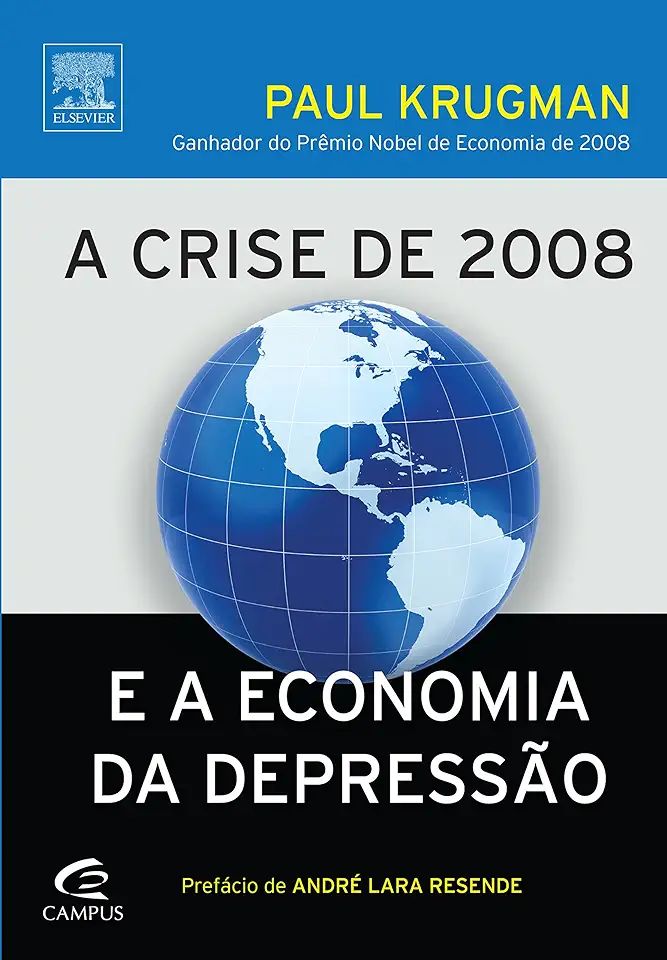
The 2008 Crisis and the Economics of Depression - Paul Krugman
The 2008 Crisis and the Economics of Depression: A Book Review
Introduction
In his book "The 2008 Crisis and the Economics of Depression", Nobel Prize-winning economist Paul Krugman provides a comprehensive and insightful analysis of the causes and consequences of the 2008 financial crisis. Krugman argues that the crisis was the result of a combination of factors, including deregulation of the financial industry, excessive risk-taking by banks, and a housing bubble fueled by low interest rates. He also argues that the crisis could have been avoided if policymakers had taken a more active role in regulating the financial industry and preventing the housing bubble from forming.
Causes of the Crisis
Krugman identifies several key factors that contributed to the 2008 financial crisis. First, he argues that the deregulation of the financial industry in the 1990s and 2000s allowed banks to take on excessive risk. This risk-taking was encouraged by the belief that the financial system was self-regulating and that banks would be able to manage their own risks. However, as Krugman shows, this belief was misplaced.
Second, Krugman argues that the housing bubble that formed in the United States in the early 2000s was a major contributing factor to the crisis. This bubble was fueled by low interest rates and lax lending standards. As a result, many people were able to buy homes that they could not afford. When the housing bubble burst in 2007, these homeowners were left with underwater mortgages and the banks that had lent them money were left with bad loans.
Third, Krugman argues that the failure of the financial system to properly regulate itself was a major cause of the crisis. The banks were allowed to take on too much risk and they were not required to hold enough capital to absorb losses. As a result, when the housing bubble burst, the banks were unable to withstand the losses and they began to fail.
Consequences of the Crisis
The 2008 financial crisis had a devastating impact on the global economy. In the United States, the crisis led to a deep recession, the loss of millions of jobs, and a decline in home values. The crisis also had a significant impact on Europe, where it led to a sovereign debt crisis in Greece, Ireland, Portugal, and Spain.
Krugman argues that the crisis could have been avoided if policymakers had taken a more active role in regulating the financial industry and preventing the housing bubble from forming. He also argues that the crisis could have been mitigated if policymakers had responded more quickly and effectively to the crisis once it began.
Lessons from the Crisis
Krugman concludes his book by arguing that the 2008 financial crisis provides important lessons for policymakers. First, he argues that it is important to regulate the financial industry in order to prevent excessive risk-taking. Second, he argues that it is important to prevent asset bubbles from forming. Third, he argues that policymakers need to be prepared to respond quickly and effectively to financial crises.
Conclusion
"The 2008 Crisis and the Economics of Depression" is a must-read for anyone who wants to understand the causes and consequences of the 2008 financial crisis. Krugman provides a clear and concise analysis of the crisis and he offers valuable lessons for policymakers. This book is essential reading for anyone who wants to prevent future financial crises.
Why You Should Buy This Book
If you are interested in learning more about the 2008 financial crisis, then I highly recommend that you buy this book. Krugman provides a clear and concise analysis of the crisis and he offers valuable lessons for policymakers. This book is essential reading for anyone who wants to prevent future financial crises.
Here are a few reasons why you should buy this book:
- Krugman is a Nobel Prize-winning economist who has written extensively about the 2008 financial crisis.
- The book provides a clear and concise analysis of the causes and consequences of the crisis.
- The book offers valuable lessons for policymakers who want to prevent future financial crises.
- The book is well-written and engaging, making it a pleasure to read.
If you are interested in learning more about the 2008 financial crisis, then I highly recommend that you buy this book.
Enjoyed the summary? Discover all the details and take your reading to the next level — [click here to view the book on Amazon!]